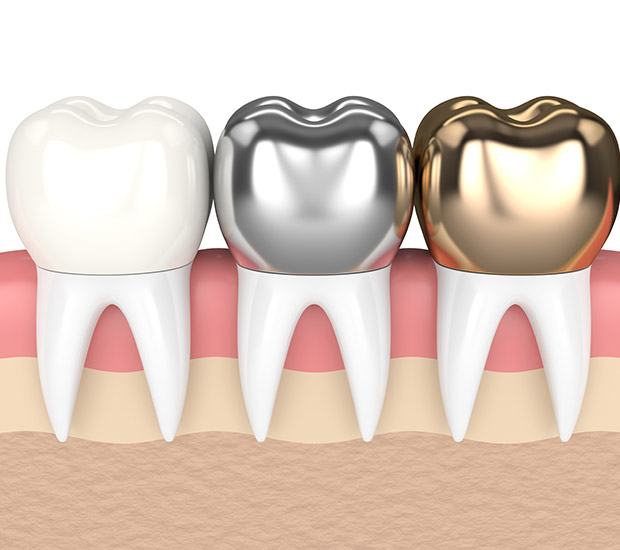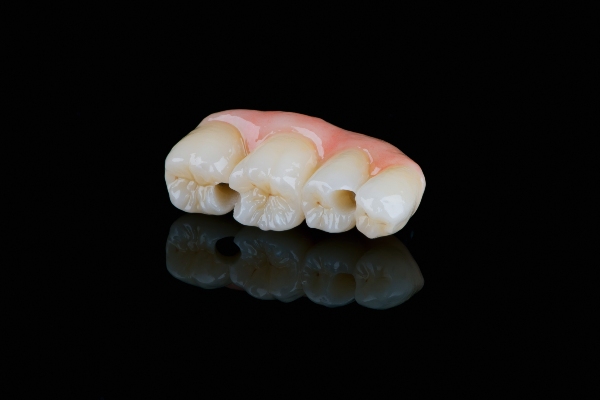CrownsSaratoga Springs, NY
Dental crowns have long been the standard for restoring teeth, but more recently, dentists have been recommending them to address cosmetic issues. Since dental crowns completely cap an entire tooth, any imperfections or abnormalities can be covered, thus eliminating the problem as a whole. Keep reading to find out more about dental crowns and how they are used in cosmetic dentistry.
Everything to know about dental crowns
Below is a guide to dental crowns, including when they are recommended, how they work and their benefits, as well as other things that are worth noting when considering any type of cosmetic dentistry procedure.
Dental crowns for cosmetic fixes
Many people are under the impression that dental crowns can only be used for restorative purposes, but this is far from the truth. Crowns are used commonly in cosmetic dentistry because they act as natural-appearing caps, which restores the look and function of the tooth. There are actually many cosmetic issues that dental crowns can solve. Outlined below are a few imperfections that crowns can address.
- Teeth that are so severely stained that they will not respond to whitening agents
- White spots on teeth, which are due to a lack of calcium
- Cracks in the teeth that may appear to be dark in color
- Teeth that have chips in them, resulting in a sharp tooth that may appear jagged or even crooked
- Teeth that may not be 100% evenly aligned with their surrounding ones but might not require orthodontic treatment, such as braces or aligners
In some cases, the steps involved may vary. For example, practices that have access to same-day dental crown technology will only require patients to visit the office once, instead of twice.
When are crowns recommended?
Dental crowns are recommended in cosmetic dentistry when dental fillings, bonding or veneers are not options. Fillings are usually used for more minor problems, specifically restorative ones. However, veneers are also commonly used in cosmetic dentistry, albeit with limitations. They are strictly for front teeth, whereas crowns are meant for the back teeth because they can cover the entire tooth.
The benefits
Crowns have an array of benefits:
- Long-lasting (up to 10 years)
- Variety of material options
- Little to no extra care is required
- Easy to maintain
Dental crown procedure and the material options
When it comes to getting a dental crown, dentists recommend getting familiar with the procedure beforehand. This allows for a better understanding of what to expect, which can be helpful in reducing dental anxiety and easing nerves. Outlined below are the steps of a dental crown procedure.
- A numbing agent is applied to ensure that there is little to no discomfort felt during the procedure
- The damaged or decayed parts of the natural tooth are removed using a dental drill
- Next, the dentist cleans the natural tooth to ensure that there is no debris left behind
- Impressions are taken of the natural tooth to ensure a proper fit of the permanent crown
- A temporary dental crown is placed to protect the natural tooth
- Then, a dental lab custom creates the dental crown based on the impressions
- After a week or two of waiting, the patient can return to the dentist's office for permanent placement of the crown
- Dental cement is applied to the natural tooth so the permanent crown can be placed successfully
- Any necessary adjustments will be made to ensure a snug fit
Material options
Dental crowns have become quite versatile, especially in cosmetic dentistry. Individuals who want to restore a tooth for aesthetic purposes can choose a porcelain dental crown because it appears white in color, thus making it look like a natural tooth. Porcelain is strong and can last up to 10 years with proper care.
Composite resin is also an option that appears white in color, but it is not likely to last as long. Composite crowns are most commonly used temporarily. Metal crowns, such as gold or alloy are strong, but they do not typically meet cosmetic goals because they are either gold or silver in color.
FAQs
Here are a few frequently asked questions about dental crowns.
1. Are dental crowns permanent?
They are a permanent solution, but they may require repair or replacement after 10 years, depending on the material chosen and the care provided. For example, dental crowns made of gold can last forever because they are known to be one of the strongest dental materials. Porcelain crowns, which are the standard in cosmetic dentistry, may only last five to 10 years. Porcelain provides pleasing aesthetics, however.
Individuals who avoid foods that are tough, chewy or sticky are more likely to experience long-lasting dental crowns. It is also recommended to brush, floss and rinse daily to ensure that the oral cavity stays healthy.
2. What is the best way to make crowns last?
Brushing, flossing and rinsing every day is essential. It is also recommended to avoid foods that are hard, chewy or tough, as these can dislodge the entire crown. Additionally, it is best to visit the dentist on a regular basis for routine care.
3. Are there any restorative benefits to getting a dental crown?
Yes! Because crowns cap the entire tooth, any existing cavities can be removed and covered, thus restoring the tooth. Additionally, any cracks or chips that pose a risk to the oral cavity can be covered with a crown, thus eliminating any risk.
Final thoughts
When getting a dental crown for cosmetic purposes, dentists advise patients to avoid anything strenuous on the oral cavity for at least 48 hours, including eating foods that require extra effort. It is also recommended to avoid touching the area, as this could cause discomfort or irritation. Dentists also advise rinsing with salt water a few times after the placement procedure, as this helps prevent bacteria build-up within the mouth.
Contact Us
My Saratoga Dentist PLLC is located at
569 N. Broadway
Saratoga Springs,
NY
12866





